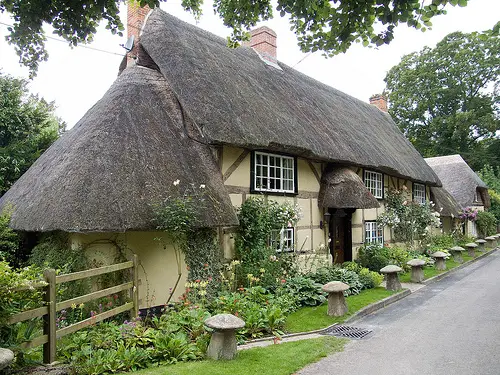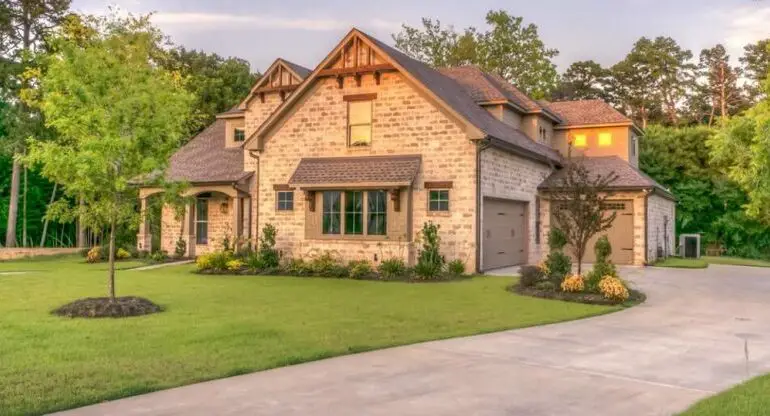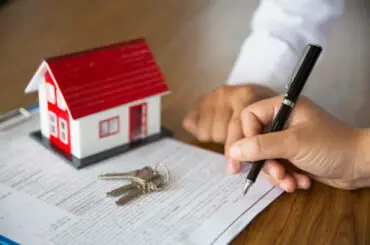Information presented on this web page is intended for informational and educational purposes only and is not meant to be taken as legal, financial, investment or tax advice. We do not accept any responsibility for any trading or investment related losses. Please review our disclaimer on before taking action based upon anything you read or see.
Homeownership is something that most people desire all over the world. It is an area to call home to settle down and do whatever they want with their space. For years, owning a home has been viewed as a positive asset and a wise financial investment. Let’s find out why buying a house is a bad investment.
Attitudes are beginning to shift. Many financial experts are now denying that homeownership is a worthwhile option, with some even claiming that it is the worst option. Thus, we have made this post to enlighten you on why buying a house is a bad investment.
Why House shouldn’t be considered an Investment

At its most basic level, an investment is the saving of money in the hopes of earning money or profit. It should be evident from the definition why buying a house is a bad investment.
Homeownership should not be a viable investment strategy unless you are a full-fledged real estate investor who possesses multiple properties for the sole purpose of profit.
For example, you may invest in college education because you anticipate that the lifetime salary due to your degree will be greater than the amount you paid for the education. Choosing to buy a house, on the other hand, isn’t a wrong decision.
However, handling it as an investment is the way to go. Renting is less expensive upfront than buying a house. And if you plan on staying at your home for a long time, this will become less of an issue. It can take decades to recoup the money you put into a house in some cases.
That hardly qualifies as an investment. As a homeowner, you should consider a roof over your head and an area to call home for a long time. However, it’s best not to think of it as something you can profit from.
Why Buying a House is a Bad Investment

In the long run, understanding why purchasing a property is a lousy investment may save you both energy and cash. Buying a property is a poor financial choice because of hidden expenses and unspoken limitations compared to other possibilities. With that in view, here are some reasons why purchasing a home are a poor investment:
Unforeseen expenses
You may be pretty particular about the principal cost of regular investment. When it comes to a house, though, there may be a lot of unanticipated future costs. For example, a windstorm may cause a tree to fall and take a portion of your roof with it.
Fixing this might cost tens of thousands of dollars. This is frequently far more than you anticipated for the direct cost of your property. The longer you reside in your home, the more unexpected expenses like these may crop up.
The closing expenses, which include anything from lender admin fees to pure mortgage interest, typically roughly 2-5 percent of the total cost of a property.
In addition, the 1% rule of maintenance states that homeowners should anticipate spending 1% of their home’s worth on upkeep each year. In the instance of a $700,000 property, care alone may cost roughly $7,000 each year.
The total cost
The costs of owning a house extend well beyond unanticipated bills. Carrying costs are the regular expenditures that a property owner will encounter throughout the property’s ownership, often once a month.
These carrying expenses, once again, are added to the principal payment that a homeowner could have expected to make. These ongoing expenditures include mortgage payments, insurance, property taxes, and utilities. These kinds of expenses don’t usually link with investments.
There may also be a homeowner’s organization that does some basic house upkeep in certain places. But there’s usually an excellent monthly charge to be paid in compensation. This is why homeownership doesn’t regard as a short- to medium-term investment.
These monthly expenses help ensure that it takes several years of property ownership before you start earning back all you’ve put into the “investment.”
Appreciation is not all
One of the main selling aspects for those who consider homeownership an investment is appreciation. Appreciation is overdone, in my opinion. When inflation gets considered, typically, real estate prices have only increased by a little more than 1% over the previous 100 years.
For a brief period, a home’s appreciation may significantly surpass inflation. However, this isn’t enough of an assurance. Depreciation is a critical danger that comes with appreciation. In the event of a downturn, property values may plummet, making them less of an investment and more of a burden.
The goal of buying a property as an investment is to profit when you sell it. However, in the event of a financial crisis, your investment might lose all of its value in a matter of months. This will also take years to recover.
You could never sell
In addition to the preceding argument, it should not be regarded as an investment if you want to live in your house indefinitely. The goal of an asset is to benefit from your principal at some time in the future. However, if you never plan to sell your property, you will never make a profit.
Even if you decide to sell, you won’t have lived long enough in your house to make a profit. The typical homeowner remains in their house for 13 years, just long enough to recoup their initial investment.
Furthermore, if you are not a property developer and merely a homeowner, you will almost certainly need to utilize the proceeds from the sale of your old home to buy a new one. Selling a property may act as a crossing point to a new home unless you have a planned strategy for cashing out on your equity.
There isn’t any money coming in.
Another reason why owning a home is a terrible investment is that presuming you live in the property. There is no active cash flow flowing in. Real estate investors may benefit by letting out their homes to others and profiting from the rent collected.
However, you will have no cash flow if you live on the property. Stock investments, for example, may provide dividends, which may contribute to making the investment worthwhile. There is no active cash flow if it is your principal dwelling when it comes to property.
Even if you planned to keep your house as a long-term investment, it would only be worthwhile if you had a steady stream of positive cash flow.
There is no diversity.
Even for full-fledged property investors, a lack of portfolio diversification might be hazardous. The most significant investment portfolios include investments in various businesses and assets. An investor may lower risk by diversifying effectively.
If one asset loses value, other ones may compensate. However, if a buyer has put all their money into that asset, they will lose everything. Diversification gets intended to reduce the connection between your investments.
You are not shielded against drops in property values or other causes if you solely own your own home. As a typical homeowner, you may be vulnerable to significant declines in your house value without having additional assets to compensate for the loss.
Limited flexibility and freedom
One of the most important reasons, why owning a property is a terrible investment is the lacking of flexibility. Even if you’re a landlord with multiple properties, you’ll need to live close to them. You may need to drive out to the property and be present if one of your tenants calls for maintenance or other needs.
Investor also wants some autonomy and adaptability when it comes to their investments. You want to sell your property at any time and make a profit.
This can be obtained through stocks or bonds but not through a home. There are various reasons you will need to sell your house if you own one. You may not be able to profit from your investment, whether it is personal or financial.
A home is mainly used to provide a roof over your head and has no other use. Controlling the timing of investments becomes much more complex due to this.
Frequently Asked Questions
Is buying a house a bad investment?
Yes. The above tips on why buying a house is a bad investment will aid you immensely in this.
Is it possible to live in a home for the rest of your life?
Whether you’ve discovered an apartment you like, you’re probably wondering if you’ll be able to live there indefinitely. Yes, theoretically, you may – as long as your lease gets renewed. You’re not on your own. According to a recent housing poll, over 40% of renters believe they would never buy a house.
Is it a waste of money to purchase a house?
Many Americans believe that purchasing a house is a waste of money. You may pay thousands of dollars in interest on a loan for years, never reaping the full tax advantages and never seeing enough value to justify the investment.
How long can you stay in an apartment?
A masonry structure’s typical lifetime should be 75-100 years. However, it gets thought that the average duration of an apartment is 50-60 years, whereas the average life of a traditional home is 40 years.
Conclusion
In conclusion, many people are usually confused regarding buying a house. Thus, the above tips on why buying a house is a bad investment will aid you immensely.





